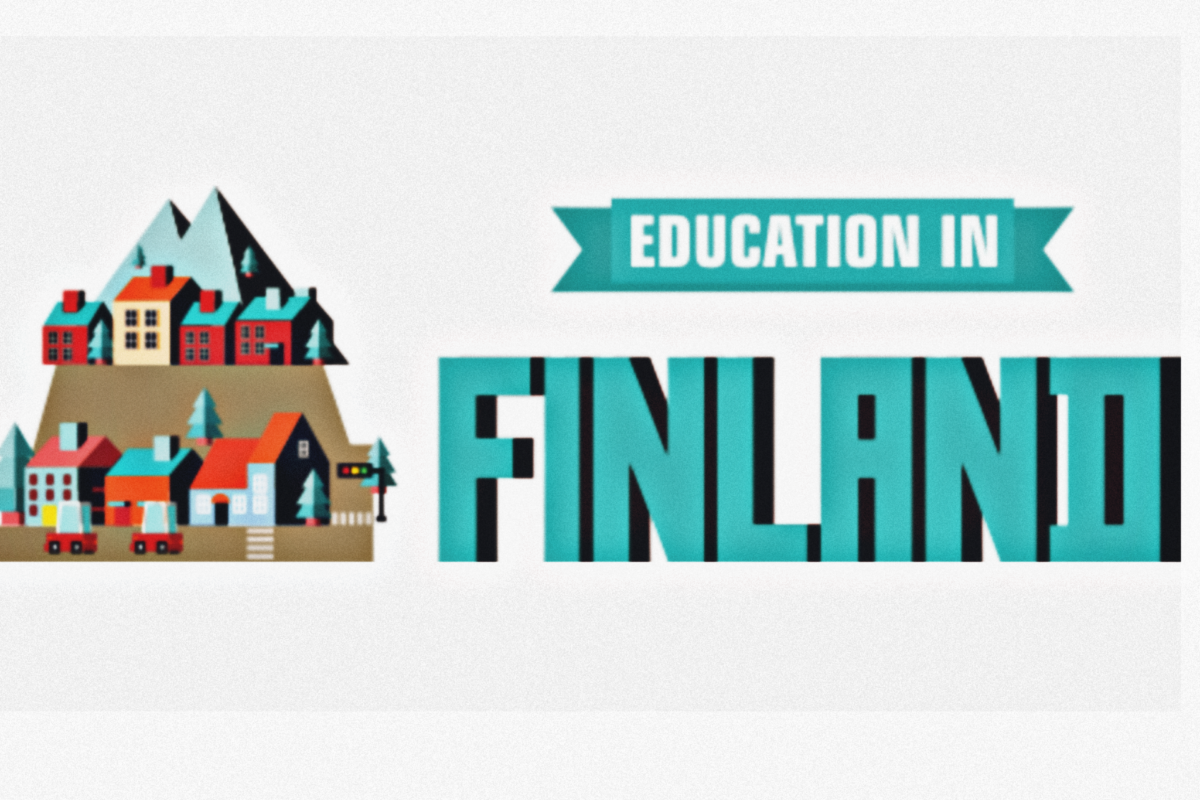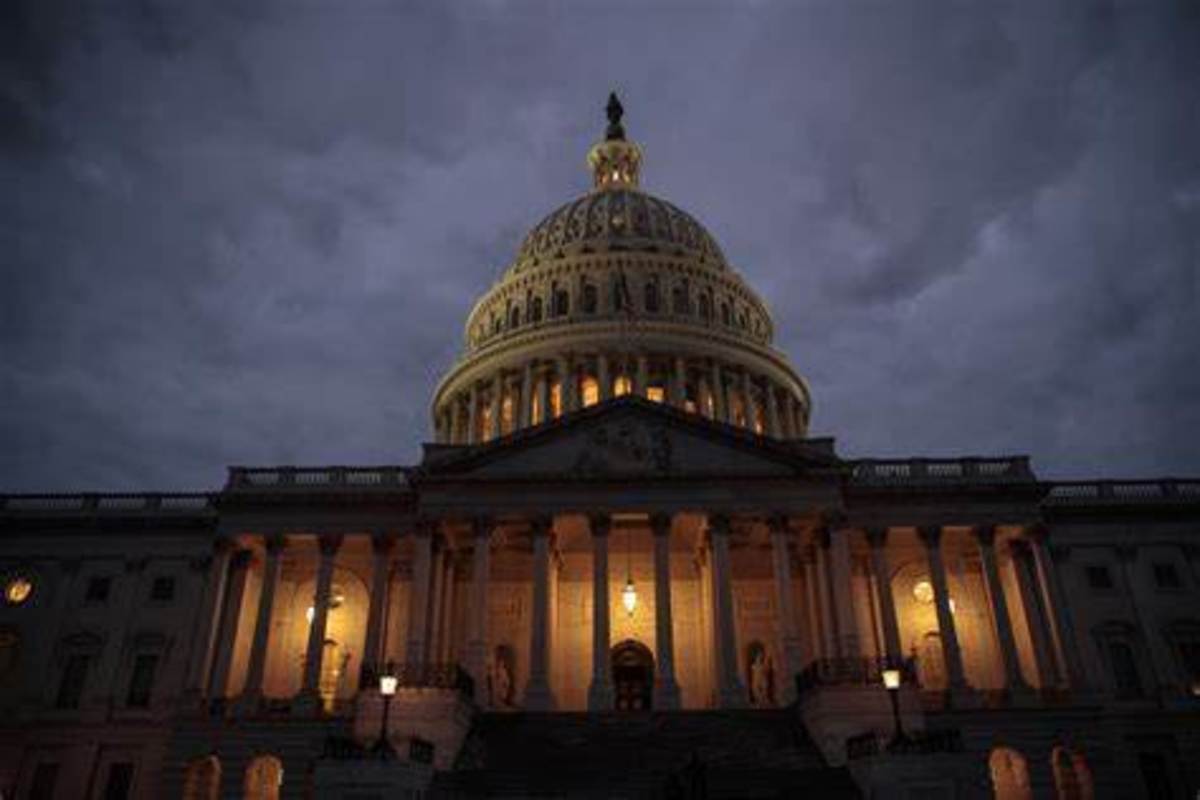Affirmative Action in Education and the Workplace: A Conceptual Rebuttal

It is not my intention to take one side or the other in the debate about Affirmative Action. Whenever I see endless debates like this, that go around and around, I usually say to myself: I don't want to get on that merry-go-round! Instead, I'm going to challenge the underlying assumption upon which both sides depend.
It seems to me that both the 'pro' and 'con' position both effectively agree that the United States educational system operates on merit. For our purposes, let us define the word as follows: Merit is the combination of intelligence and hard work. Students should advance in the academic rankings on the basis of how smart they are and how hard they work. Given this, it should follow that those students designated as 'gifted' enough to skip grades or something like that, should have an even higher proportion of intelligence in that intelligence-hard work formula than even the highest ranking, but nevertheless 'average' student of 'average' IQ. Moreover, the merit should carry those students (both the high-attaining 'average' students and the 'gifted') to the most prominent colleges and universities that the U.S. has to offer, should they decide to take post-high school education. They should enjoy dazzling tenures at these institutions of higher learning, and then go on to be selected, by merit alone, for the plumb white collar jobs in the U.S. economy.
Now then, the 'con' side of the debate operates on the premise that the U.S. education system runs on merit, and that Affirmative Action policies unjustly short circuits this system of just reward. It amounts to what they call 'reverse discrimination,' in giving undeserving minority students pride of place over their more qualified, fellow white students. They believe that this kind of thing is injurious, in general, to the very idea of standards---I mean STANDARDS!
The 'pro' side also operates on the premise that the U.S. educational system runs on merit. However, they believe that there is reason, on occasion, to short-circuit this structure to provide accommodation for students from historically disadvantaged, discriminated-against, and marginalized communities. They say that these students have been hamstrung by social and economic factors which have, quite understandably, curtailed their ability to gain impressive academic achievement. Affirmative Action is seen as a positive step in beginning to address historic, lopsided imbalances in economic prosperity between white and black, primarily, and to a lesser extent, white and Hispanic, Asian, Native-American, and the like. Remember, we are confining our inquiry to the United States of America.
Let's begin
Now then, we are testing the premise that the U.S. educational system runs on merit.
Does the U.S. educational system run on merit? If it does, then we can return to the original debate about Affirmative Action. But if we find that the U.S. educational system does NOT run on merit, then we have to ask two follow-up questions: 1) What does the U.S. educational system run on?; and 2) Why do we, nevertheless, say that it runs on 'merit'?
Let me tell you a little story
I want to tell you a little story. When I'm finished, I will ask you to stayed tuned for the end of this essay when I reveal the possible key to the 'mystery.'
When I went to college, Rutgers University in Newark, New Jersey, I had a dorm roommate one year. Let's call him Thor. He is a white young man from Canada. He was nineteen, set to graduate with his four-year BA degree at the age of twenty.
You know, you hear things like this: So and so graduated college at twenty. So and so graduated college at nineteen. And the reaction is 'ooooh'... 'aaaah,' and 'WOOOOOw!' So and So must reaaaaalllllly be smart! And all that jazz.
Okay, to return to our story. It came to pass, one day, that Thor was asked how he came to be in that position, poised to graduate college at the ripe old age of twenty.
Thor said, with his customary grin, that during the course of his academic tenure (back in Canada, I think), it so happened that he started 'failing' ('failing' is the word he used; he certainly took a downward turn in his performance, he says).
Anyway, the institutional response was to assume that the nosedive he took in his academic performance was indicative of the fact that he was bored. He was not being challenged, which was why he was not working hard and 'failing.' Therefore what needed to happen was to SKIP him several grades!
And so, this brought him to entering college at 15 or 16, like that. oooooh! aaaaah!
Please stay tuned for the end of this essay, where I will reveal what I think happened here.
The power of patents
I'm going to go in a strange direction and quote something from one of the 'Founding Fathers' of our country, James Madison. This is from The Federalist. This was the thinking that went into the construction of the U.S. Constitution. Mind you, it is directly bearable, for our purposes, upon the subject at hand in this essay: Does the U.S. educational system run on merit?
Okay, here goes. Madison said: 'The diversity in the faculties of men, from which the rights of property originate, is not less an insuperable obstacle to a uniformity of interests. The protection of these faculties is the first object of government. From the protection of different and unequal faculties of acquiring property, the possession of different degrees and kinds of property immediately results; and from the influence of these on the sentiments and views of the respective proprietors, ensues a division of society into different interests and parties...' (1).
Let's diagram that part of a passage sentence-by-sentence
We're talking about the eighteenth century here, and even though the language is English, there are differences in the way words were used then and the way they are used now.
1. "The diversity in the faculties of men, from which the rights of property originate, is not less an insuperable obstacle to a uniformity of interests."
What are 'diversity of faculties' and 'rights of property'? What Madison seems to be saying here is something like this: Men vary in the level of their inner capacities (intelligence, diligence, hard work, etc.---remember we're dealing with a Protestant Calvinist heritage here), and it is precisely this variation in their capacities which determines their relative 'rights' to property (wealth--land); that is to say the man with greater 'faculties' will have the 'right' to greater wealth. We're talking about 'natural rights' doctrine.
The greater men will have greater faculties than relatively lesser men, and will, therefore have greater rights to property (wealth) than the lesser men; and the greater men will acquire this greater property. The greater men will get greater property at the expense of lesser men, and it is this that will cause conflict between these sorts of men.
2. "The protection of these faculties is the first object of government."
Notice that the word 'faculties' was used in the sense of individual inner capacities in the first sentence; and is used in the conjoined sense of both inner capacities and property (attained by the application of the inner capacities). You see, it would make no sense to say that the first object of government is merely the protection of man's individual inner capacities. No, we're talking about the protection of private property; and the sentiment is that government ought to protect what man has earned by his own labor, his 'faculties.'
3. "From the protection of different and unequal faculties of acquiring property, the possession of different degrees and kinds of property immediately results; and from the influence of these on the sentiments and views of the respective proprietors, ensues a division of society into different interests and parties..."
It is the government's protection of different and unequal faculties of getting wealth, that the possession of different degrees and kinds of wealth immediately brings about; and from the influence of these various kinds of wealth interests on the sentiments and views of their proprietors (that is to say, government), brings about a stratification of society into classes.
So, there is a such thing as classes in the United States of America, and James Madison thought it a matter of common sense that this should be the case, though we do not like to speak of such things today.
Look at sentence number 2 again: "The protection of these faculties is the first object of government." It seems to me that we have the seeds of the operative sentiment that guides American patent law. You must constantly affirm the superiority of 'our' or 'my' inner capacities that allowed us or me to come up with this remarkable invention or innovation; and you, government must renew my patent forever more.
Actually, many people say that the U.S. patent system is 'broken,' or 'out of control,' to the extent that it is strangling innovation, especially in the information technology sector (2).
Basically, government is being asked to defend the property gains (and persons) of the superior men from the jealous predations of the inferior men.
The Myth of the Gifted Child
I would draw your attention to an article written by Jennifer Senior called The Myth of the Gifted Child in the February 8, 2010 edition of New York magazine. The article is subtitled: The Junior Meritocracy.
Before I get into this, let me just add another reason why I generally refuse to take a side on the Affirmative Action debate. It is because in other, more democratically functional states, the governments has always seen fit to provide their citizens with free education; they had always seen fit to make it free (out-of-pocket) from pre-k through the PhD. And I bet that in those countries they have more, solid colleges and universities that also have open-admission policies, allowing absolutely anyone who wants to go to college, to go. Therefore the issue of 'Affirmative Action' just doesn't come up because you don't have working people, of all colors, being made to fight each other for the crumbs, as we are here in the United States.
Okay, let us proceed with the article.
The article focuses on New York City but I'm sure the phenomena happens all over the country.
Anyway, the first thing to know is that an ERB is an intelligence test given to four-year-olds to test their eligibility to enter one of the highly selective private or public elementary schools. Almost every elite elementary school in the City requires perspective students to take it (3).
The parents of such youngsters spend time and resources to 'prep' the child beforehand, of course. They may drill their four-year-olds for an hour or more at a time, getting them into shape for the big day with practice exams. They may even use a $350 'evaluator,' (some psych grad student maybe) (4).
Jennifer Senior wrote: "Nearly every selective elementary school in N.Y.C., public or private, requires standardized exams for kindergarten admission, some giving them so much weight that they won't even consider applicants who score below the top 3 percent. If a child scores below this threshold, it hardly spells doom. But if a child manages to vault over it, and in turn gets into one of these selective schools, it can set him or her on a successful glide path for life" (5).
Yada, yada, yada, so on and so forth. But, in light of the previous section we looked at involving the political thinking of James Madison, and how that relates to 'patent' law, think of toddler IQ testing like this: Mrs. Senior is saying, that according to her research/reporting, that if a child is able to establish a 'patent' for being 'gifted,' that can set "him or her on a successful glide path for life."
Are you still with me so far? Good!
Stay with me.
The article talks a little bit about IQ testing and their results. There are some skeptical voices as to their efficacy in evaluating youngsters, but it is clear that the system is dominated by an institutional mindset that is quite 'bullish' on the whole thing. The 'bulls' say that IQ is static and scores are 'pure' gauges of ability (6).
Senior points to an interesting study done by Lloyd Humphreys, a psychologist and pioneer in something called psychometrics... Anyway, he did an analysis about how IQ levels were maintained over many years. The study was based in Louisville, Kentucky. The subjects were regularly tested between the ages of 4 and 15. By the end of the eleven years the average change in their IQ's was ten points (7).
This finding has consequences, says Mrs. Senior. A four-year-old with an IQ of 85 would likely qualify for remedial education. But that same child wouldn't need it if his IQ went up to 95. A four-year-old with an IQ of 125 would fall below the 130 cut off point for 'Gifted and Talented' programs in most cities (8).
"Yet if, at some point after that, she scores a 135, it will have been too late. She'll already have missed the benefit of an enhanced curriculum" (9).
The article refers to another important study by one David Lohman, then a psychologist at the University of Iowa, who, in 2006 co-authored a paper called Gifted Today But Not Tomorrow? The question they looked at was simply this: How many four-year-olds, who had scored a 130 or above on their IQ test, would do so again as seventeen-year-olds? The answer his research gave him was 25 percent, one-quarter (10).
What are we looking at here?
Well, the thing is IQ fluctuates for a variety of reasons over a lifetime. "The fact is 4 is far too young an age to reach any conclusions about the prospects of a child's mind. Even administrators who use the exams---indeed, especially the administrators who use the exams---say they're practically worthless as predictors of future intelligence" (11).
It would appear that some families, with the means, are subjecting their toddlers to intensive training for what is effectively the purpose of artificially and temporarily elevating the 'intelligence' of their sons and daughters for the purpose of getting them into these selective elementary schools, and hopefully, putting them on the "glide path for life."
You might say that the four-year-olds who successfully run the gauntlet and pass the IQ test with a high enough score to get into one of the elite elementary schools, have, rather, secured for themselves a 'patent' for 'giftedness.'
You know, it is interesting to note the Jennifer Senior comes to virtually the same conclusion that James Madison came to, in the larger context of putting together our republic, more than two centuries ago.
She wrote: "Rather than promoting a meritocracy, in other words, these tests instead retard one. They reflect the world as it's already stratified---and then perpetuate the same stratification" (12).
Let's return to the case of my friend Thor.
Wrapping Up the Case of Thor
If we take into account the section you looked at about some of James Madison's political thinking, which I claimed also contained the seeds of American patent law, and the section you just read about "The Myth of the GIfted Child," we can make a pretty good educated guess about how my friend graduated college at twenty, was skipped grades, even in the face of a serious downturn in his academic performance, of his 'failing,' as he had put it.
Thor never mentioned this and I never asked him, but I think that sometime during the very start of his academic career, it must have come to pass that he, himself, had (with the help of a supportive family of some means) managed to secure for himself, one of those 'patents' for 'giftedness.'
He must have got into a 'selective' elementary school of some kind, either in the United States or Canada, where he claimed to originate.
He went along with his life and academic career.
But there came a point, at some time, when he hit a bump in the road, faced serious academic crisis, which was obviously a matter of great concern. As I said before, he claimed to have been 'failing.'
And yet, the institution came to conclusion that Thor was bored with his schoolwork. and that the thing to do was to skip him one or two grades (I don't know how many grades he was skipped). The question is WHY did this happen? How could the school system, as an institution, come to such a counterintuitive assessment and recommendation?
I think the answer must lie with the 'patent' for 'giftedness,' that I believe he must have obtained some fifteen years prior to that.
If I am right, this means that the 'patent' he got, fifteen years before, for 'giftedness,' had such overwhelming power in the context of the institutional school system, that it overrode his actual downturn in academic performance.
From the way Thor told the story, no suggestion was ever made that he might have needed tutoring or something. No suggestion was ever made that perhaps the coursework was getting too difficult for him. Apparently, no suggestion was ever made that he needed to 'buckle down,' and if necessary, cut out extraneous extracurricular activities until he got his grades up.
No. Faced with his 'patent' for 'giftedness' and his academic downturn, 'failing' grades: They looked at his 'patent'; they looked at his 'failing' grades. They looked at his 'failing' grades; they looked at his 'patent.'
They decided in favor of his 'patent.' That is to say, that the school system, as an institution, apparently, decided that his 'patent' for 'giftedness' was the true measure of who he was as a student. The 'patent' was the true measure of the young man as an intellectual. The 'patent' was the true measure of Thor's innate 'capacities.' Therefore, he was advanced. Mind you, this is not the 'social promotion' we hear so much about.
No, they decided that the material that Thor had been 'failing' at, was, in fact, BENEATH HIM. Did you ever see those 'Jason Bourne' Movies? In one of them Stacy Keach plays a character who says the line: "You were given a Ferrari and you treated it like a lawnmower."
Alright, let's move on.....
By the way, what does the system think about the grades they have the 'Gifted Ones' skip? Has the system come to the conclusion that 'he' already knows the material for the grades he's skipping? Will he 'pick it up later'? Is it unimportant? How seriously does the system take its own curriculum? Is the curriculum all that serious to begin with?
Side Note: Detour
A word about the sacred cow of homework
Here, in the United States of America, we pay obeisance to the idea that 'practice makes perfect,' and all that. If the U.S. educational system runs on merit (as defined as some combination of 'intelligence' and hard work), then it should be true that doing more homework improves academic performance.
First of all, I hope I've given you some pause about our ability to even know what intelligence is, but just to make sure we'll take another pass at it later.
Well, what about the homework thing? Does doing it, more of it, improve academic performance?
I won't keep you in suspense. Well, it turns out that after sixty years of research, NOBODY has been able reach that definitive conclusion. You see, NOBODY has ever been able to establish a definitive causal relationship between homework and performance. No one has been able to show that doing more homework brings about a clarification of understanding and sharpening of cognitive skill, and all that jazz.
http://www.alfiekohn.org/teaching/hwach.htm
http://today.duke.edu/2006/09/homework_oped.html
http://www.sedl.org/pubs/sedl-letter/v20n02/homework.html
You see, it could easily be the case that the better performing students are doing more homework---you know, racking up those 'extra credit' points.
Also, it really is the case that different families, different socioeconomic backgrounds, have different levels of resources. After all, in the previous section, we've seen that not all families have the means to relentless drill their four-year-olds, thus artificially elevating their IQs enough so that they can get into those elite elementary schools, which set the youngsters on "the glide path for life," and so forh.
Some students belong to households where there are computers with Internet, two parents with college degrees or higher, a complete set of the current year of The World Book (or some such encyclopedia set or sets); the kids may have their own rooms, and more leisure time than they know what to do with. Of course, other students belong to households where none of that stuff is available; and the nature of their families may be such that, the students themselves, may be regularly responsible for a considerable number of chores required to keep the 'home fires burning'---you see, these are not families that can simply 'hire help.'
So you see, its not a fair fight! (13).
Have we proved anything yet?
Well, recall the title of this essay: Affirmative Action in Education and the Workplace: A Brief, Non-Comprehensive Discussion.
You'll recall that I said, at the outset, that I do not take either side of the debate because I do not accept the underlying premise upon which both sides rely. We are examining---in a brief, non-comprehensive way--the assumption that the U.S. educational system runs on merit, and that students advance on the basis of merit.
Where are we so far?
By looking at a snippet of the elite preschool, IQ testing subculture, we have seen how families with means are willing and able to position their four-year-olds to acquire a 'patent' for 'giftedness,' which usually leads to entrance into an elite preschool and from their "the glide path for life."
We have some anecdotal evidence (the story of my friend Thor), that these 'patents' for 'giftedness' carry so much weight within the institutional public school system, that even we these patent-holders 'fail' to adequately do the work that the rest of us mortals must do, there is no adverse consequence for them as far their academic position is concerned; indeed, their liable to prematurely promote you a grade or two.
By the way, does any of this sound familiar in another context? I'm talking about CEO salaries which are NOT correlated with performance (14), even though the compensation for workers must be, in theory, correlated to something they call 'productivity.' Say, did you notice the stunning corespondence of those relationships (the school 'giftedness' patent-holders and the rest of us; and the corporate elite and the worker drones) with respect to rewards?
You see, when I was going to school, I hit a bump in the road academically. But you know I did not have one of those 'Gifted and Talented' 'patents' that would have allowed anybody to give me the benefit of the doubt..... But I'm not bitter. I've moved on.
We have also provided some information (along with links to articles) which deals considerable doubt about the efficacy of diligently applying oneself to homework, as a means of proving merit, and thereby reaping the rewards of enhanced performance. Blah, blah, blah....
So what is homework, if not a means of demonstrating merit? Well, I'll leave that to smarter people than myself!
There a several conclusions that seem to me, to follow quite naturally. First of all, suppose I am right about my friend Thor (suppose something like the way I have filled 'in between the lines' was operative in his case). Now think of the times we all heard about this one or that one having graduated college at 19 or 20. oooooh! aaaaaah!
You know something? What is all this talk we hear about 'helicopter' parents and 'overscheduled' children? You know this is a phenomena of upper-middle class and higher on the socioeconomic pyramid in the United States (Remember, we're confining our inquiry to the United States). Here are a couple of links for you...
http://en.wikipedia.org/wiki/Helicopter_parent
Question: Could there be any connection between this socioeconomic phenomena of helicopter parents and their consequently overscheduled children, and what we are talking about?
Try this: Keep in mind the article by Jennifer Senior I referenced ('The Myth of the Gifted Child').
Now then, what if this phenomena (helicopter parenting/overscheduled children) is an unconscious admission, on the part of the parents, that they had, indeed, ARTIFICIALLY ELEVATED THE INTELLIGENCE OF THEIR CHILDREN, for the purpose of getting them into those elite, selective elementary schools; and that they (the parents) have to continue to keep their children's IQs artificially elevated through constant 'stimulation,' or 'enrichment,' at least until they get accepted to, say, Harvard?
But wait, there's more!
Recall the research Senior pointed to concerning the true, fluid, fluctuating nature of IQ. There was the work of Lloyd Humphries, a psychologist who studied children from ages 4 to 15; and David Lohman, a psychologist at the University of Iowa, who studied the question: How many four-year-olds who had scored a 130 or higher on IQ tests, would do so again at seventeen? You'll recall that his finding was 25 percent, only one-fourth. Three out of four would drop to more mortal IQ levels.
We seem to be talking about a window of at least ten points.
Anyway, does anything follow from this? How does this fit in with the 'helicopter' parents and their 'overscheduled' children?
Suppose a four-year-old---most likely from a privileged socioeconomic background---secures one of these 'patents,' we've been talking about for 'giftedness.' And suppose, with this 'patent,' he gets into the elite elementary school, and that his academic career is shaped accordingly.
Suppose that it is at this point where we see the entrance of the 'helicopter parenting,' with the understanding that it is the unconscious admission, on the part of such parents, that they had worked to artificially elevate the IQs of their children, for the larger purpose of putting them on to the "glide path for life," and all that.
But by the time these 'gifted' fifteen- and sixteen-year-olds get accepted to Harvard, say, their parents can no longer 'helicopter' them, keeping their artificially elevated IQs at that unnatural level.
This means that at least three out of four of them will return to mortal intelligence levels. I have to include my friend Thor as one of this three out of four. He's a laudable fellow in every way, a bright guy and all that, and I love him; but he is no mutant super-genius! Sorry, Thor.
What does this mean?
1. I think it follows, then, that most mortal students could be going to college or university at fifteen or sixteen.
2. I think it means that most mortal students could safely skip one or two years, at least, of the high school curriculum without any discernible adverse intellectual or academic consequences, as it pertains to post-secondary education.
3. It follows from that, that there is, apparently, some overlap or redundancy in the high school curriculum nationwide.
4. Does this say anything about the higher education curriculum in general, nationwide? Does this suggest that perhaps college is not the intellectual challenge that we have always been led to believe?
Here I would draw your attention to an article, written in The Atlantic magazine, by an interesting conservative writer, one Ross Douthat. One of things that makes him interesting is the fact that, unlike any other conservative I know of----and I can't overstress how remarkable this is---he dares to use the concept of 'class' in connection with the U.S. education system.
Anyway, the article is called, "The Truth About Harvard." In it he suggests that, from a liberal arts standpoint, the institution's 'bark is worse than its bite.' Here it is
http://www.theatlantic.com/magazine/archive/2005/03/the-truth-about-harvard/303726/
5. Actually, if you Google the words 'college,' 'university,' and 'grade inflation,' you will be presented with dozens of articles about the forty-year period now, of an inflationary pressure on grades along with a deflationary pressure on content, that's been going on in colleges and universities all over the country.
For example, you may recall the scandal, from a few years back, about how one graduating class at Harvard gave ninety percent of them 'honors.'
Here you are...
http://www.thecrimson.com/article/2004/6/10/graduating-seniors-rack-up-honors-while/
http://www.nytimes.com/2002/05/22/education/22HARV.html
To give you a flavor for the grade inflation in college in general...
6. To continue. All of this begs the question: Would the 'gifted' 15 and 16-year-olds, who enter college 'nowadays,' have been able to do so, succeed, and graduate college, if the content difficulty was restored to, say, 1960 levels? 1950 levels?
I don't think so. Certainly more of the elite would have had to settle for the 'Gentleman's C.'
U.S. Education in Global Perspective
I am offering this snapshot of the U.S. education system in global perspective because: 1) I am so constitutionally inclined; I never like to look at things in isolation; mine is a holistic approach; and 2) Whenever looking some issue, whatever it is, it is a good thing to remind yourself that the rest of the world exists.
I should say that the discussion we've been having is mainly concerned with the social sciences/liberal arts/humanities. The quantitative arts, the mathematics and sciences are, presumably, more subject to objective standards of attainment.
Though it is worth mentioning, that out of all the countries like ours (advanced industrial, capitalist states), it is we, in the United States of America, who are the very most mixed up about evolution, believing it to be "controversial rather than as settled mainstream science," as author Susan Jacoby laments (15).
Jacoby goes on to outline the disquieting level of scientific illiteracy that persists in our society. According to surveys conducted by the National Science Foundation over the past two decades has revealed that over two-thirds of Americans are unable to identify DNA as the key to heredity. Nine out of ten Americans do not understand radiation and what it can do to the body. One in five adults believes that the sun revolves around the Earth (16).
On August 30, 2005, Jacoby writes, the Pew Forum on Religion and Public Life released the results of a public opinion poll. It seems that nearly two-thirds of Americans want both creationism taught alongside evolution in public schools. Only forty-eight percent of Americans accept any form of evolution (even that guided by God). Only twenty-six percent accept Darwin's theory of evolution; and forty-two percent say that human beings have existed in this present form since the beginning of time (17).
There are differences in the results depending on the amount of post-secondary education people have. The creationist-inspired point of view increases as you move downward in educational level from the college graduate (18).
Still, in the larger society a third of Americans "mistakenly believe that there is substantial disagreement about evolution among scientists---a conviction reinforcing and reflecting the right-wing religious mantra that evolution is 'just a theory,' with no more scientific validity than any other cockamamie idea" (19).
Now, let's lay that alongside the latest results we have for the Program for International Student Assessment. This test focused on fifteen-year-olds. Anyway, out of thirty-four developed countries (countries like the United States), U.S. fifteen-year-olds came in 26th in math and 21st in science. And by the way, those are the results despite the fact that the United States spends more per student than nearly all other countries. One dismal finding was that: "Spending $115,000 annually per student, the United States performed about the same as the Slovak Republic, which spends $53,000 per student."
Here you go...
If you consider those things side-by-side---Susan Jacoby's information about American attitudes about evolution in particular (and scientific illiteracy in general) and this information about U.S. student international rankings in science and math---its hard not to conclude that there is something wildly off about the way we, in the United States, conceive the universe, nature, the physical world around us.
So it would seem that even those at the top of the heap in the U.S., are merely at the top of a heap that is near the bottom of the global heap (among advanced industrialized countries).
What's the problem? The prevailing doctrine is that the students who rise to the top are the ones who have risen through merit; and yet (presuming it is our 'best' students we put up for the competition) they post results that must make us an international laughingstock!
Let's go back to this item: "Spending $115,000 annually per student, the United States performed about the same as the Slovak Republic, which spends $53,000 per student."
That is the issue at the end of the day, in the United States, isn't it? Money and resources. We are told that there is not enough to go around, as usual. The super-rich gorge themselves at the banquet table, and leave working people of all colors to fight each other for the scraps. To me, the very issue of 'Affirmative Action'/'reverse discrimination' is nothing more than an engineered brawl between black working people and white working people over places 'at good schools' (at the college/university level).
By the way, its not a news flash to you that the African-Americans who have been the overwhelming beneficiaries of Affirmative Action, are those young people from upper-middle class and socioeconomically higher families, is it?
So, we're not even really talking about what we think we are talking about, in the first place, when we speak of affirmative action. We're not really talking about the entire mass of white Americans and the entire mass of black Americans, as the concept of 'affirmative action' implies.
But still, one group is black and one group is white, even if this upper tier has roughly the same income and wealth. And despite everything we have looked at, it stands that people who say 'reverse racism,' continue to make the concrete claim that they are losing, say, places at prestigious colleges and universities to concretely less qualified competing black students.
Of course, the crime right there is that the United States (until very recently anyway) is just about alone among advanced industrialized countries that do not see fit to educate their citizens free of out-of-pocket expense. We have to pay for it, and through the nose; I know I don't need to go into that!
Should an SAT score of less than 1400 bar one from the Halls of Harvard---I mean HARVARD?
Should a lifetime GPA of less than 3.9654321 bar you from Princeton?
Should the absence of those things in your resume, in addition to your having failed to make Eagle Scout and be born to the appropriate family whose forebears were at the first Constitutional Convention prevent you from pursuing a 'higher education' at Cornell?
Look, one completes high school, takes her SATs, figures out the whole how-to-pay-for-college thing (remember we're talking about the United States); and she chooses the best college she can get into, applies, and hopes to get accepted.
X college, she thinks, will give her the best chance to have a prosperous life after college. If she is 'victimized' by Affirmative Action, which 'bumps her off her slot,' if you will, in favor of a less academically qualified minority candidate, well that really sucks because her future prosperity is put at risk.
That is the general thinking, right?
To give yourself the best chance for success in the United States, today, you have to at least have a four-year college degree. Right?
The problem with accepting that notion without qualification leaves out an awful lot. Namely, it leaves out the crucial role of government action and social policy in making prosperity possible.
Question: Why is it better to be a doctor, lawyer, accountant, financier, or college professor, than a manual laborer of some kind?
There are two major reasons I want to focus on.
1. Its not just that white collar work pays a whole lot more; the issue, from the standpoint of government action and social policy is this: the government protects the income levels of these professions from 'market forces' (international competition); conversely, the government allows 'market forces' to drive down wages of manual workers (20)
The economist Dean Baker points out that if we, in the United States, paid doctors what they are paid in Western Europe (let alone a developing country), we would save eighty billion (with a 'b') dollars a year (21).
Dean Baker points out that there are "extensive licensing and professional barriers that prevent foreign doctors, lawyers, economists, and journalists from competing on an equal footing with their counterparts in the United States" (22). He went on to write: "In 1997 Congress tightened the licensing rules for foreign doctors entering the country because of concerns by the American Medical Association and other doctors' organizations that the inflow of foreign doctors was driving down the salaries. As a result, the number of foreign medical residents allowed to enter the country each year was cut in half" (23).
2. The other reason is freedom. White collar workers have relative individual, operational autonomy (how they do the work). They do not have some one standing over them, micromanaging their activities the way manual workers do.
But there was a time when social policy had been different, a time during the early republic when the free, industrial workplace was democratically run, as a matter of course, in ways that socialists and communists and anarchists can only dream about today (24).
In a 2011 article written by John Bellamy Foster we read: "In nineteenth-century capitalism, workers were in a position to retain within their own ranks the knowledge of how the work was done, and therefore exercised a considerable degree of control over the labor process. Hence, control of the labor process by owners and managers was often more formal than real. As corporations and their workforces and factories got bigger with the rise of monopoly capitalism, however, it became possible to extend the division of labor, and therefore to exercise greater top-down managerial control. This took the form of the new system of scientific management, or 'Taylorism' within concentrated industry. Control of the conception of the labor process was systematically removed from the workers and monopolized by management. Henceforth, according to this managerial logic, workers were merely to execute commands from above, with their every movement governed down to the smallest detail" (25).
Still, it is better to have a college degree than not to have one?
Again, the affirmative answer has to be qualified. It turns out that not all four-year college degrees are created equal.
I would draw your attention to a study of the nation's higher education infrastructure, done by Edward B. Fiske for the New York Times, in the early-1980s. The project became a book: The New York TImes Selective Guide to American Colleges, 1982-1983. Here was the premise: The United States had almost 2,000 institutions that were calling themselves four-year colleges, awarding bachelor's degrees (26).
He would rank the schools from one to five stars. If a school was found to have any mentionable academic worth at all, it would at least get one star. Out of the two thousand, he came up with 265. He could only bring himself to select 265 colleges out of the nearly 2,000 for the whole United States of America, as worthy of even receiving one star for academic quality. He had NOT been able to find a single institution of mentionable academic quality in the whole states of Nevada, North and South Dakota, Wyoming, and West Virginia (27)
Now then, one of the schools that Fiske only gave two stars (at least it was one of the 265) was cited for the following deficiencies: an undistinguished College of Arts and Sciences; large classes; disorganized registration process; understocked library; permissive admission standards; emphasis on varsity sports; too much teaching done by graduate students (28).
The 265 are selective institutions; and the other 1,728 left off the list are nonselective. Now, in Social Standing in America, two researchers, Rainwater and Coleman found that going to a good college---a real one---increased one's income by 52 percent; going to a really good one (like one of Fiske's five-star institutions) increased it by 32 percent over that. However, they found that one achieved absolutely no income advantage at all, if he graduated from one of the 1728 'nonselective' colleges, found to be of unmentionable academic quality by Fiske. That is, to graduate from one of the nonselective colleges, gives you the same income as graduating high school (29).
So, What's the deal?
Author, Paul Fussell answered that question for us. He gave some indication that what was going on in the United States, in the 1950s and 1960s, was something you might call an education 'bubble.'
He wrote: "Educational opportunity was opened up by the process of verbal inflation, by promoting, that is, numerous normal schools, teacher's colleges, provincial 'theological' seminaries, trade school, business schools, and secretarial institutes to the name and status of 'universities,' thus conferring on them an identity they were by no means equipped to bear, or even understand" (30).
He went on: "What was happening in the 1960s was simply an acceleration of a process normal in this country---inflation, hyperbole, bragging" (31). And: "Here its as natural for every college to want to be a university as for every employee to want to be an 'executive,' and every executive a vice president" (32).
That's pretty straightforward, isn't it? Like our national power grid, our infrastructure of higher education is antiquated, more appropriate to the nineteenth century than the twenty-first century.
How does everything we've been talking about relate to the issue of Affirmative Action and workplace discrimination (as it pertains to getting employment)?
A passage from an editorial from a February 2002 edition of USA Today, wraps the whole matter up very nicely and puts a big red bow on it for us.
In that editorial we read: "When all students receive high marks, graduate schools and business recruiters simply start ignoring the grades. That leads the graduate schools to rely on entrance tests. It prompts corporate recruiters to depend on a 'good old boy/girl' network in an effort to unearth the difference between who looks good on paper and who is actually good (33).
"Put to disadvantage in that system who traditionally don't test as well or lack connections. In many cases, those are poor and minority students who are the first in their families to graduate from college. No matter how hard they work, their A's look ordinary" (34).
Thank you for reading.
References and Notes
1. Beard, Charles A. An Economic Interpretation of the Constitution of the United States. (with new introduction by Forrest McDonald). The Free Press (Macmillan, Inc.), 1913, 1935. 14-15
2. I would draw your attention to an episode of a public radio program called "This American Life." The episode deals with what's going on with the U.S. patent system, especially as it pertains to high-tech, information technology. Retrieved 6/26/2014 http://www.thisamericanlife.org/radio-archives/episode/441/when-patents-attack; and there is more discussion of this in a free e-book written by an economist, Dean Baker, "The Conservative Nanny State:" Retrieved 6/26/2014 http://deanbaker.net:8080/images/stories/documents/cns.html Chapter 4.
3. Senior, Jennifer. (2010, February). The Myth of the Gifted Child. New York Magazine, 28.
4. ibid
5. ibid
6. ibid, 31
7. ibid
8. ibid
9. ibid
10. ibid
11. ibid, 30
12. ibid, 33
13. That was one of the major lines of argument in a short but very effective book: Kralovec, Etta & Buell, John. The End of Homework: How Homework Disrupts Families, Overburdens Children, and Limits Learning. Beacon Press, 2001.
14. On the matter of CEO pay and its non-correlation with performance, see: Stiglitz, Joseph, E. The Roaring Nineties: A New History of The World's Most Prosperous Decade. W.W. Norton & Company, 2003. 123: Here the discussion is about stock options as the preferred method of compensation for CEOs---their willingness to take the money when the market went up (and the bonuses that came with this) but, at the same time they complained that they shouldn't be 'penalized' when the market went down, and so forth; and see Krugman, Paul. The Conscience of a Liberal. W.W. Norton, 2007. 148: And, Krugman points out that this has no counterpart anywhere in the world!
15. Jacoby, Susan. The Age of American Unreason. Pantheon Books, 2008. xvii
16. ibid
17. ibid, 22-23
18. ibid, 23
19. ibid
20. Baker, Dean. (2006). The Conservative Nanny State: How the Wealthy Use the Government to Stay Rich and Get Richer. Retrieved http://deanbaker.net:8080/images/stories/documents/cns.html chapter 1
21. ibid, paragraph 12
22. ibid, paragraph 9
23. ibid, paragraph 11
24. Russell, Thaddeus. A Renegade History of the United States. The Free Press, 2010. 7
25. Foster, John Bellamy. (2011, July-August). Education and the Structural Crisis of Capital: The US Case. Monthly Review. Retrieved from http://monthlyreview.org/2011/07/01/education-and-the-structural-crisis-of-capital paragraph 13
26. Fussell, Paul. Class: A Guide Through the American Status System. Summit Books, 1983. 130
27. ibid
28. ibid, 131
29. ibid, 134
30. ibid, 135
31. ibid
32. ibid
33. Ivy League Grade Inflation [Editorial]. (2002, February 8). USA TODAY. Retrieved from
http://usatoday30.usatoday.com/news/opinion/2002/02/08/edtwof2.htm
34. ibid








